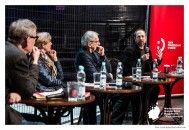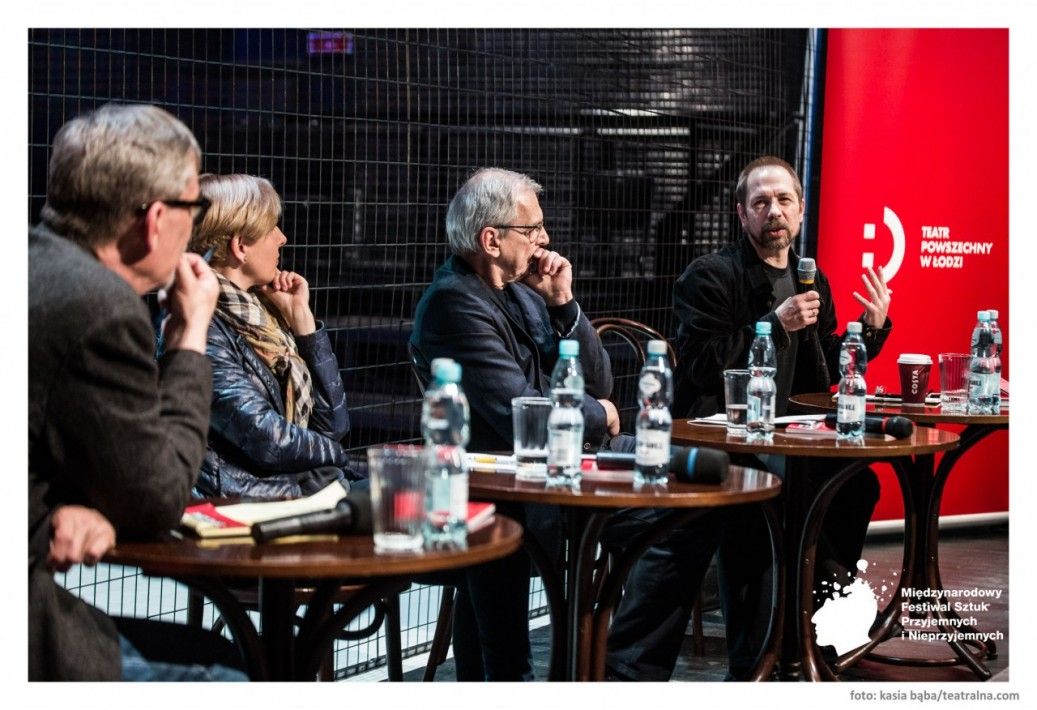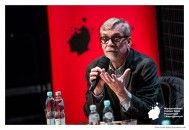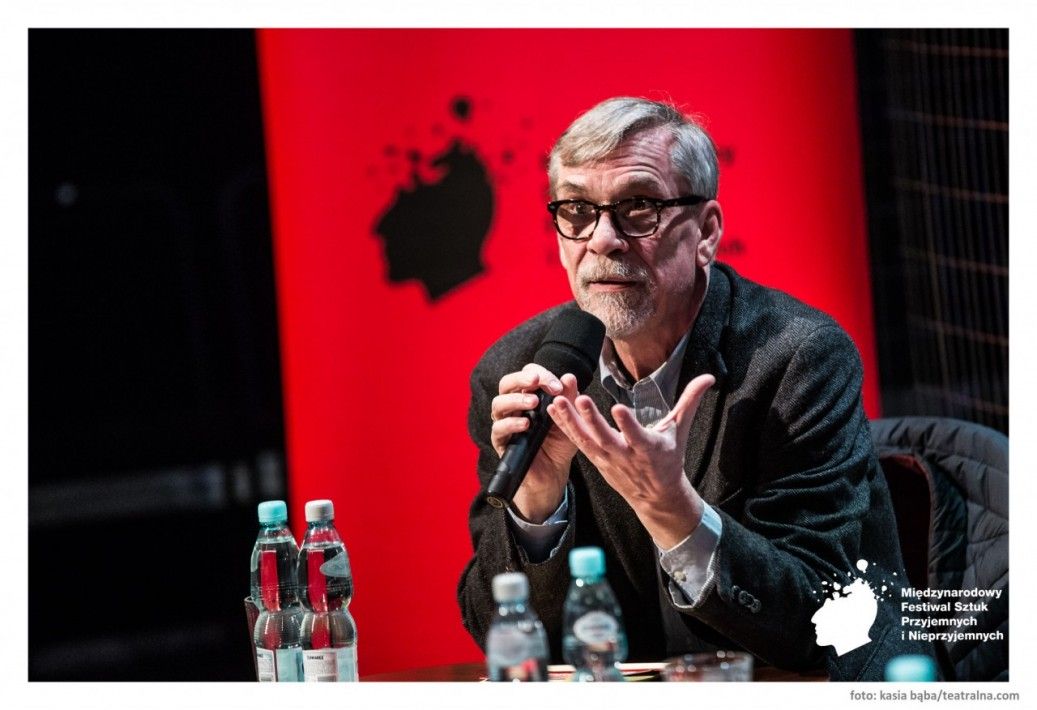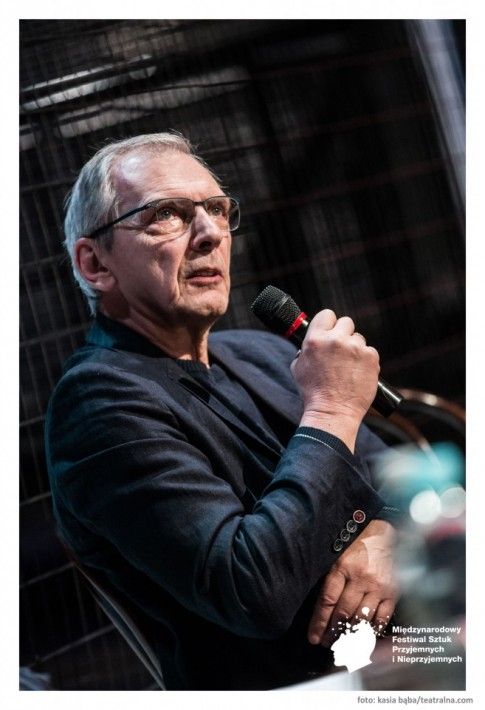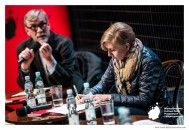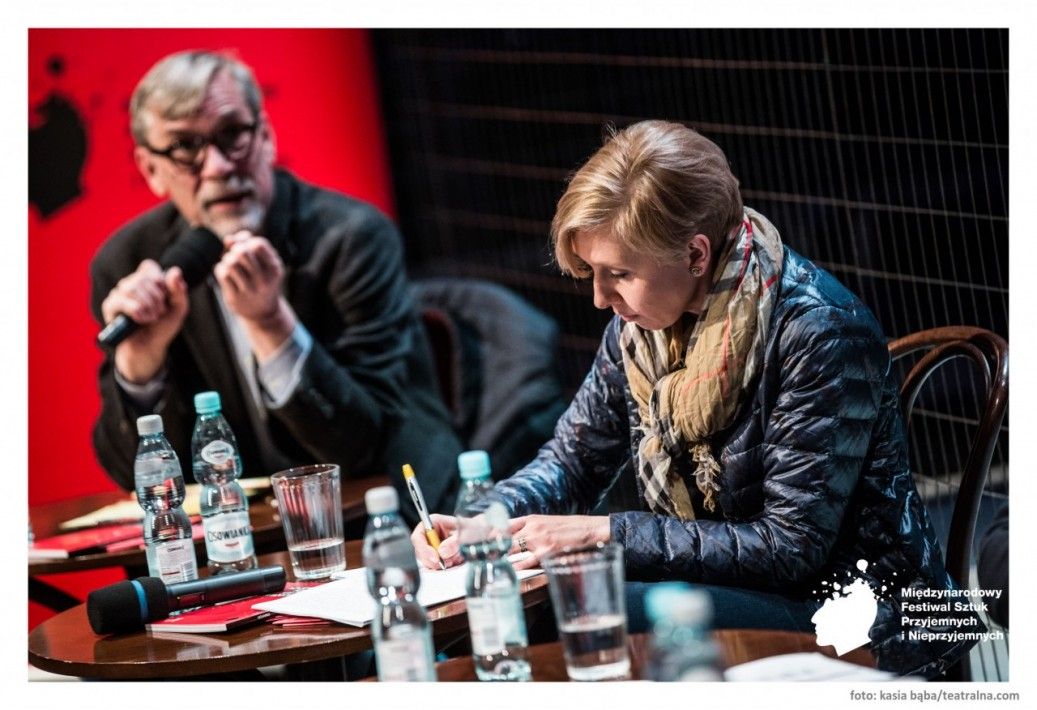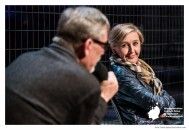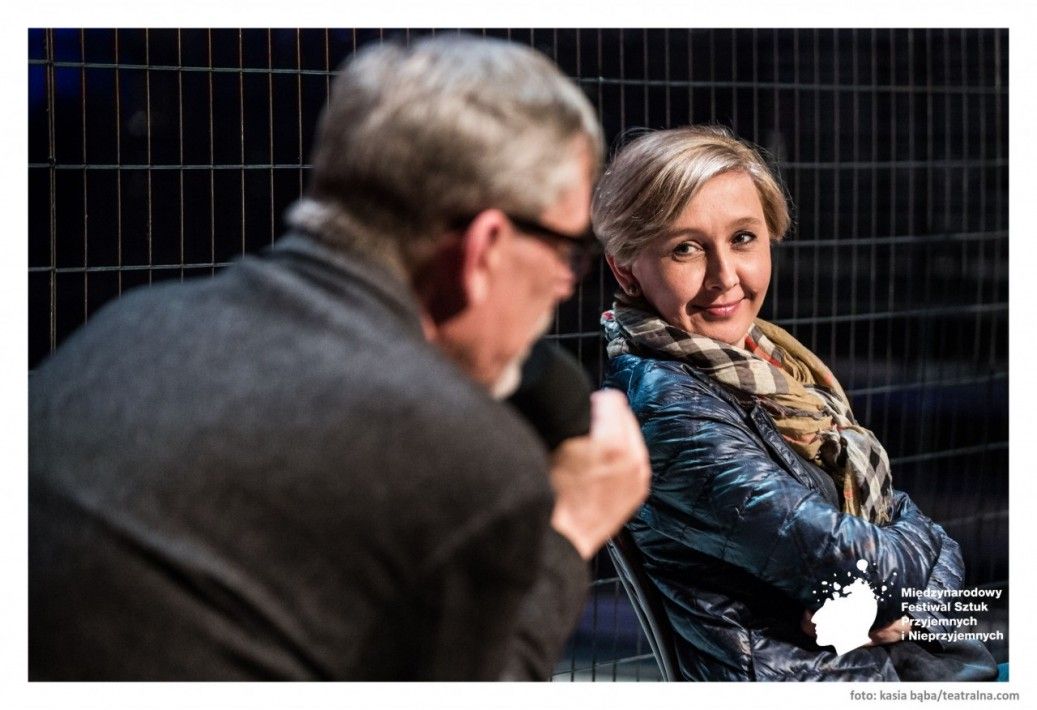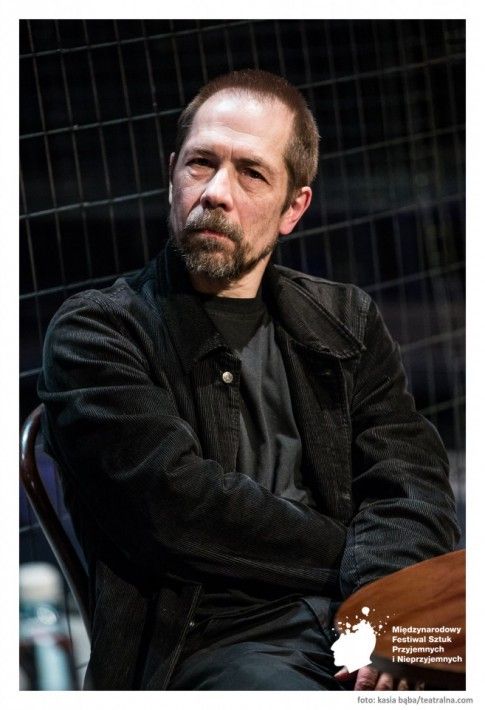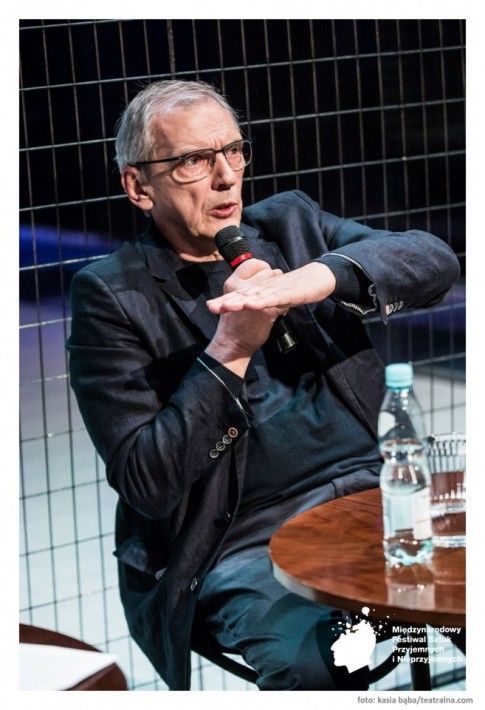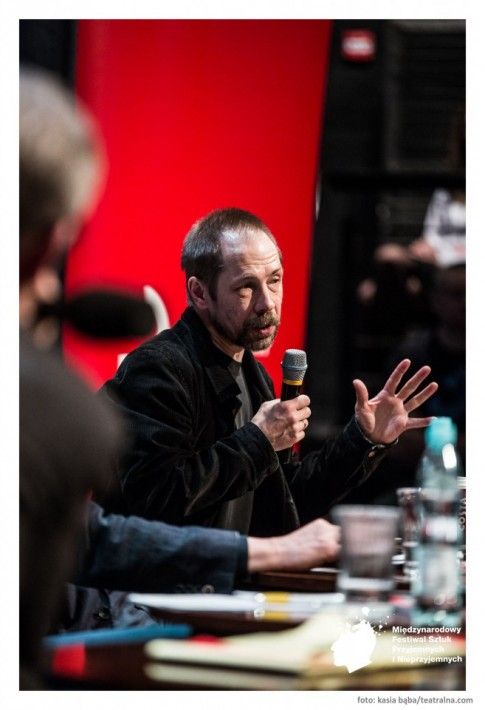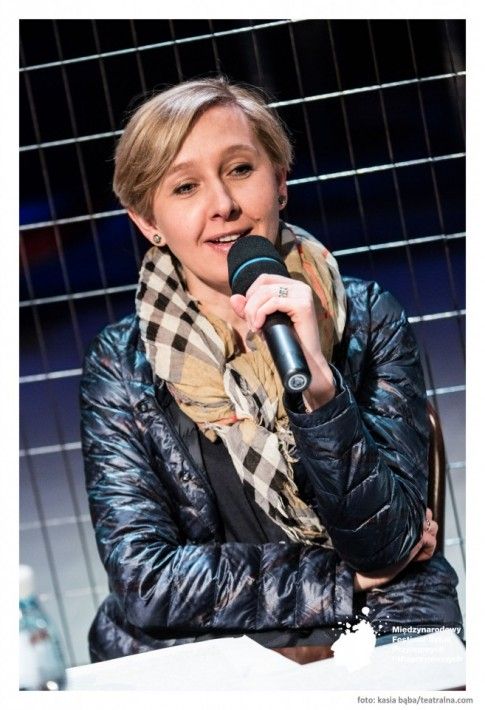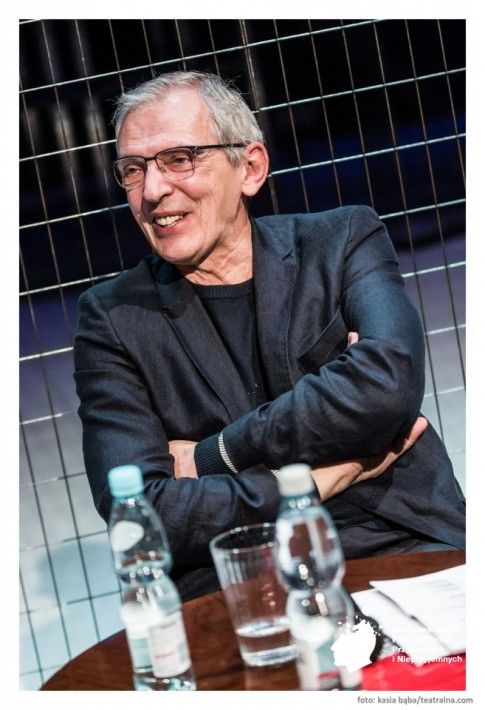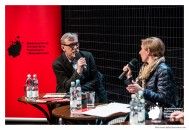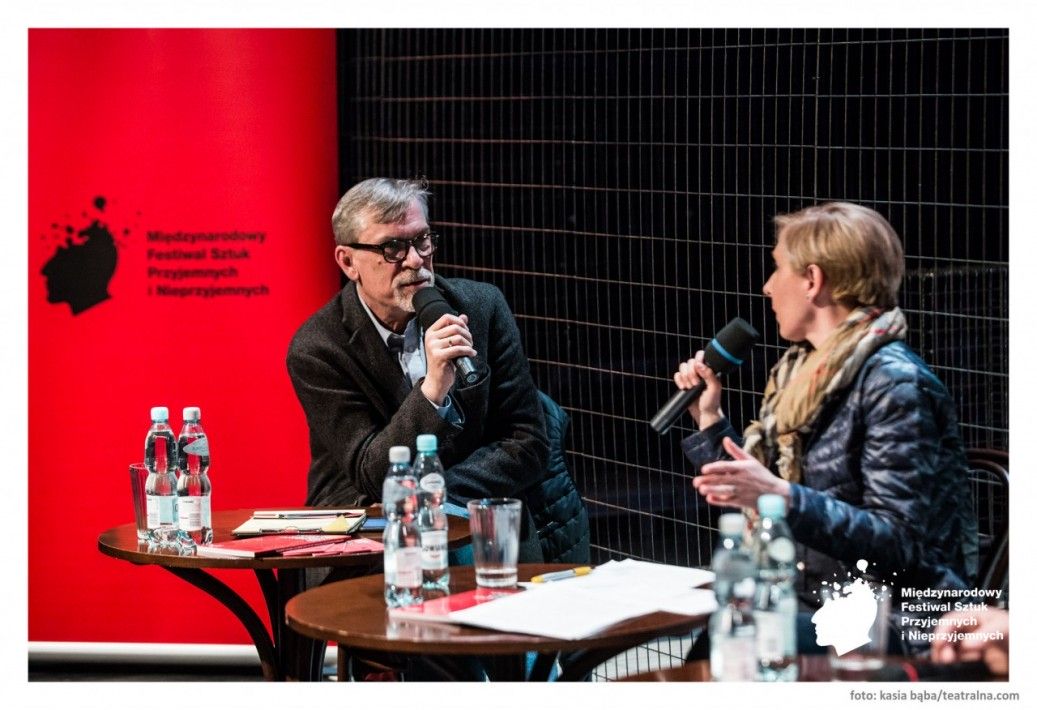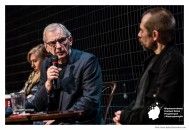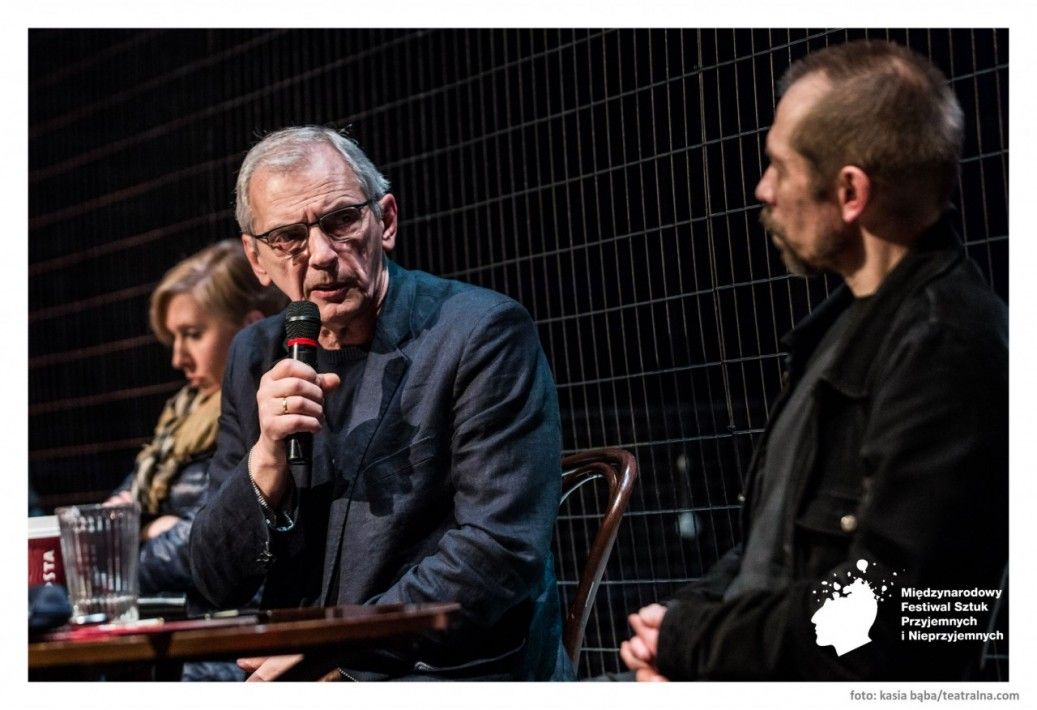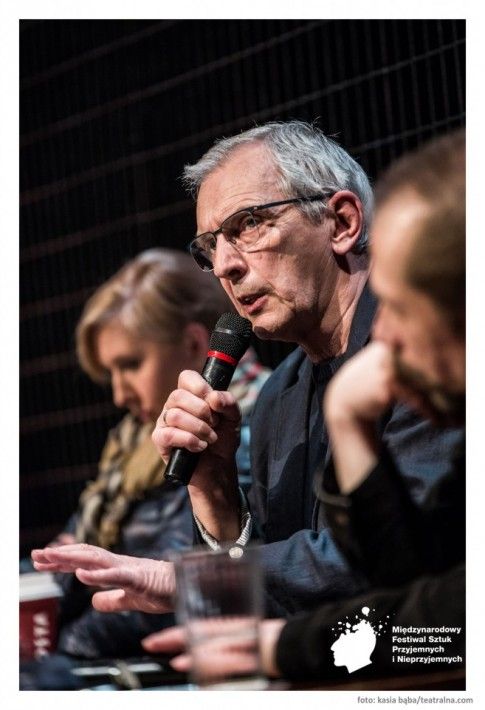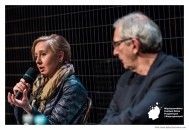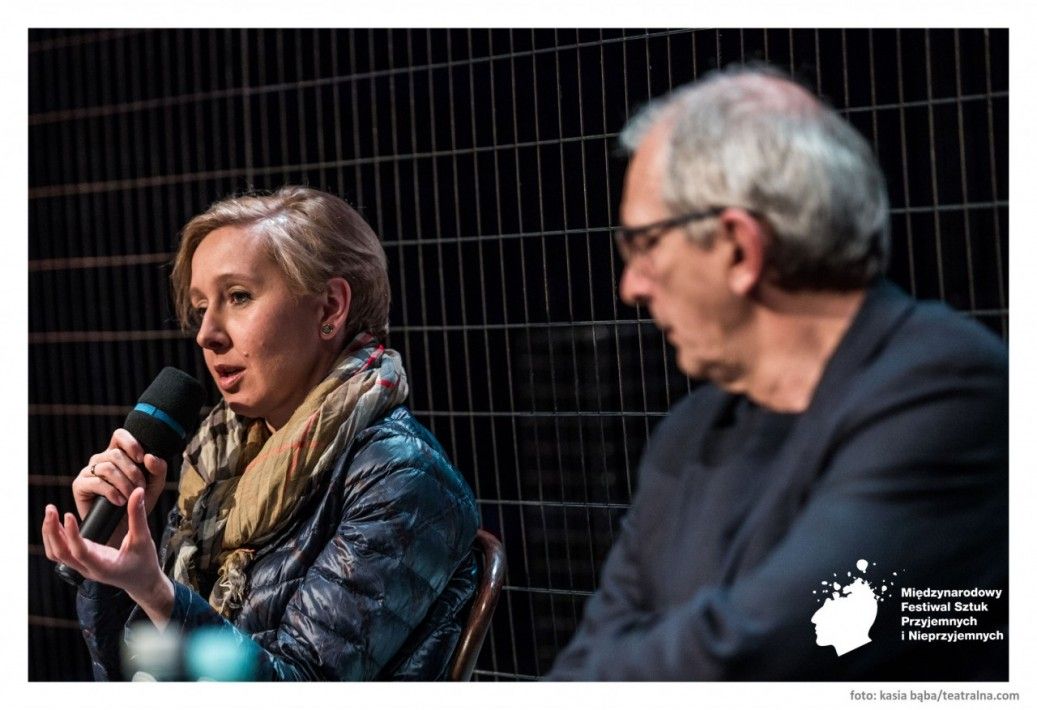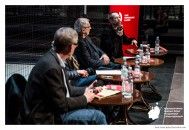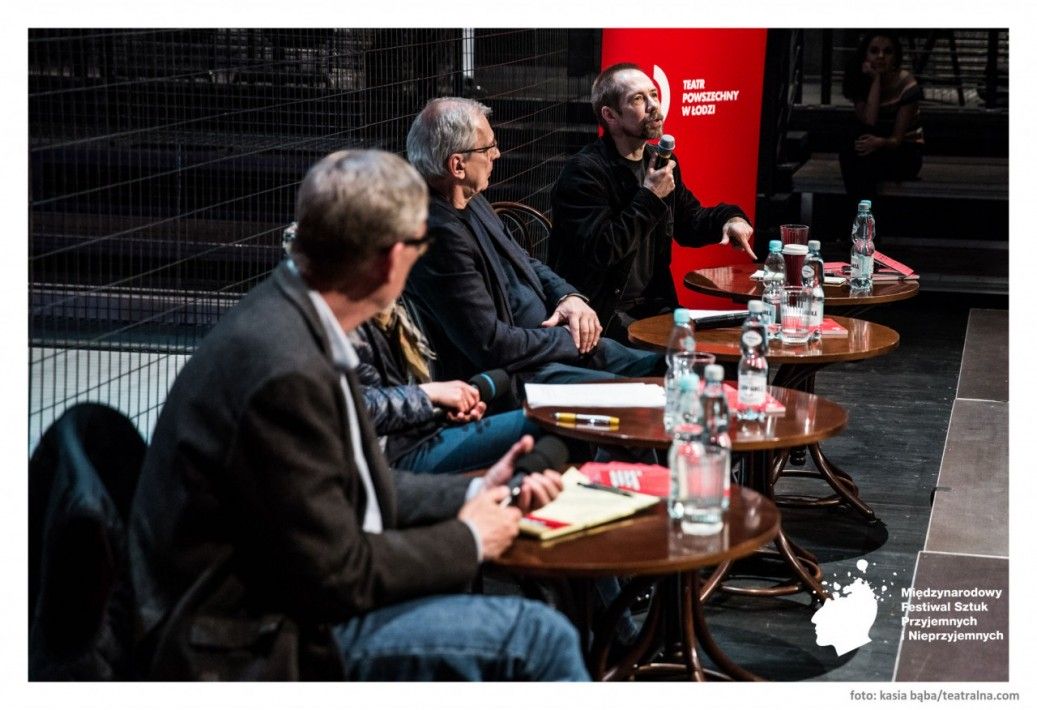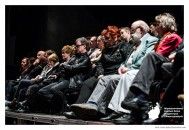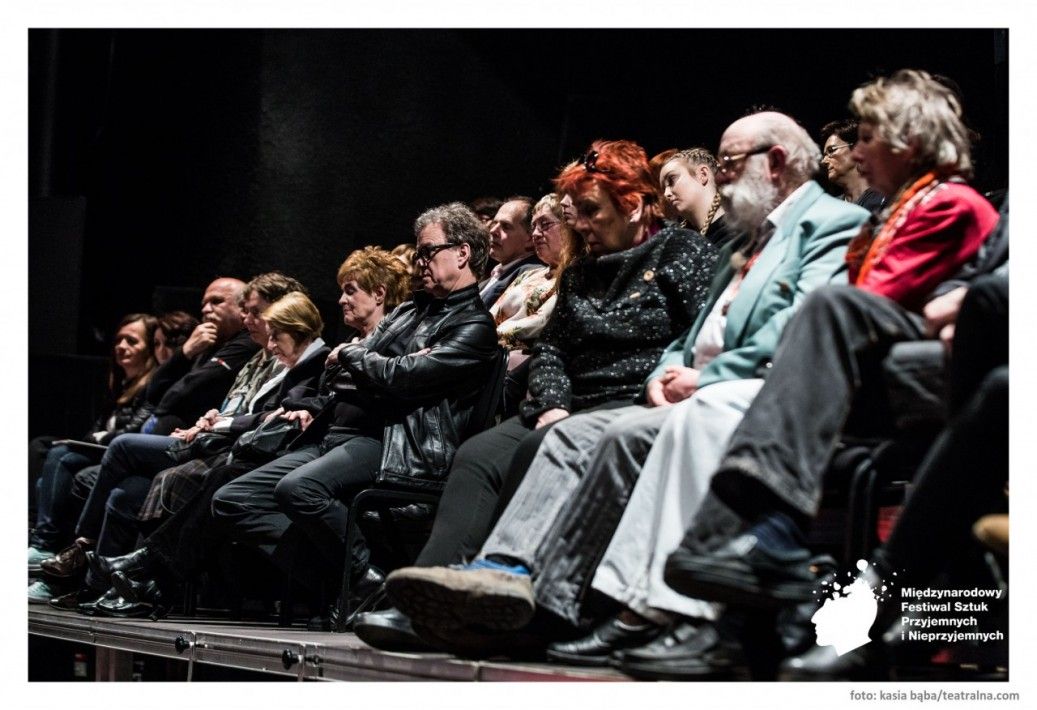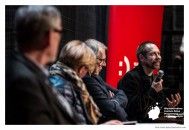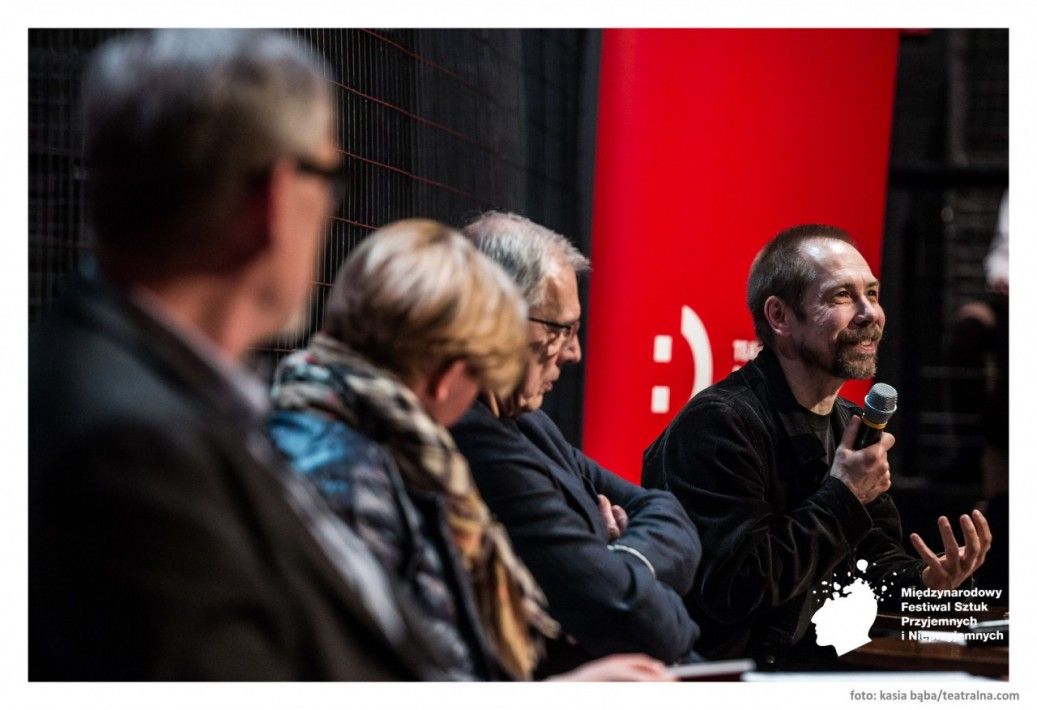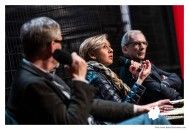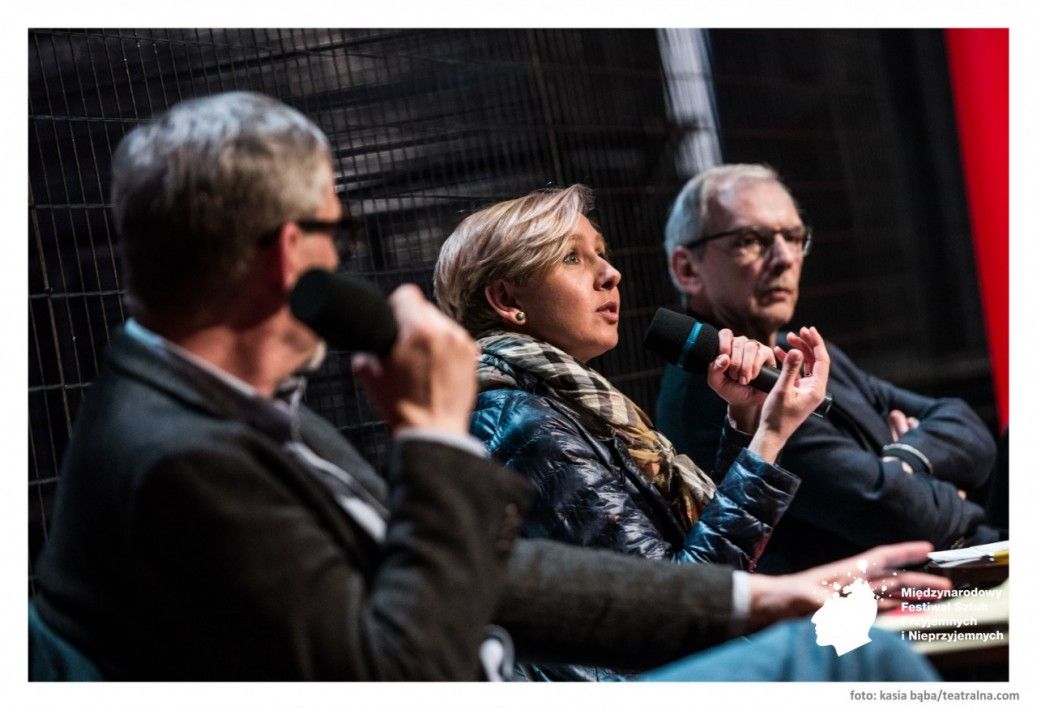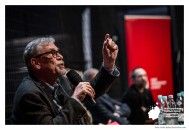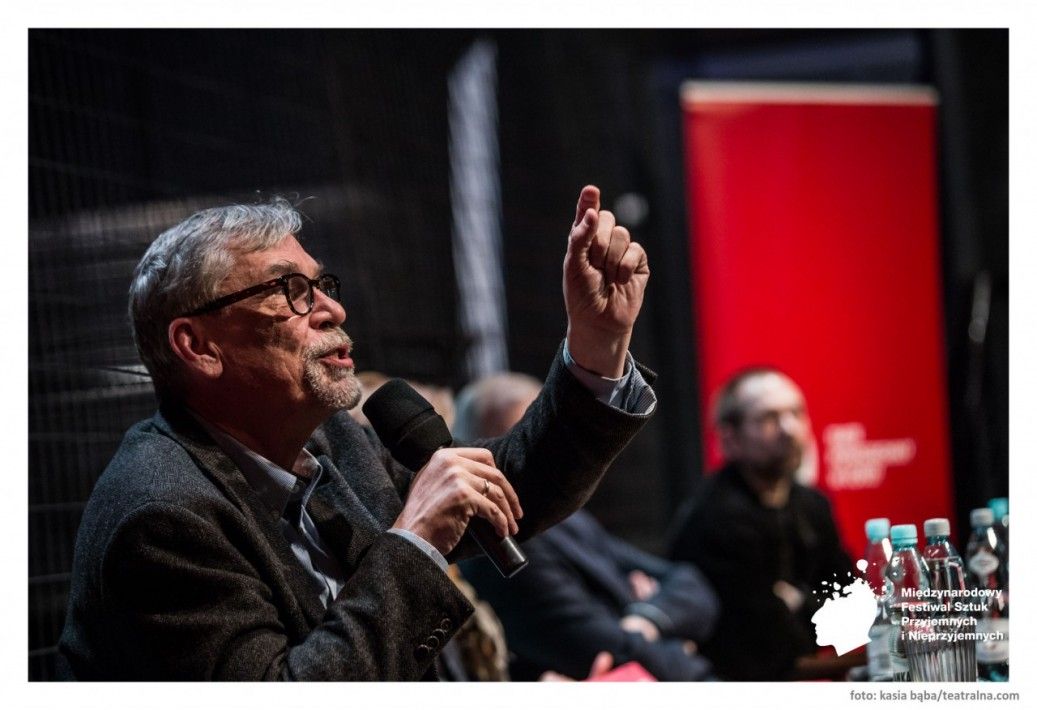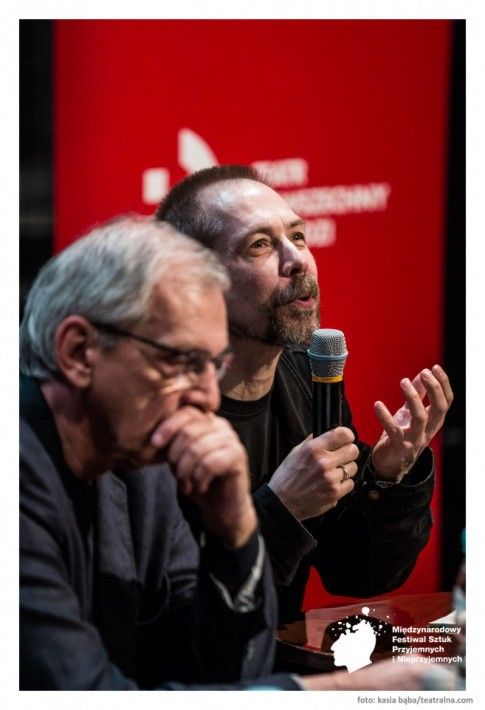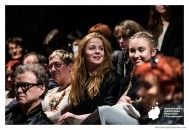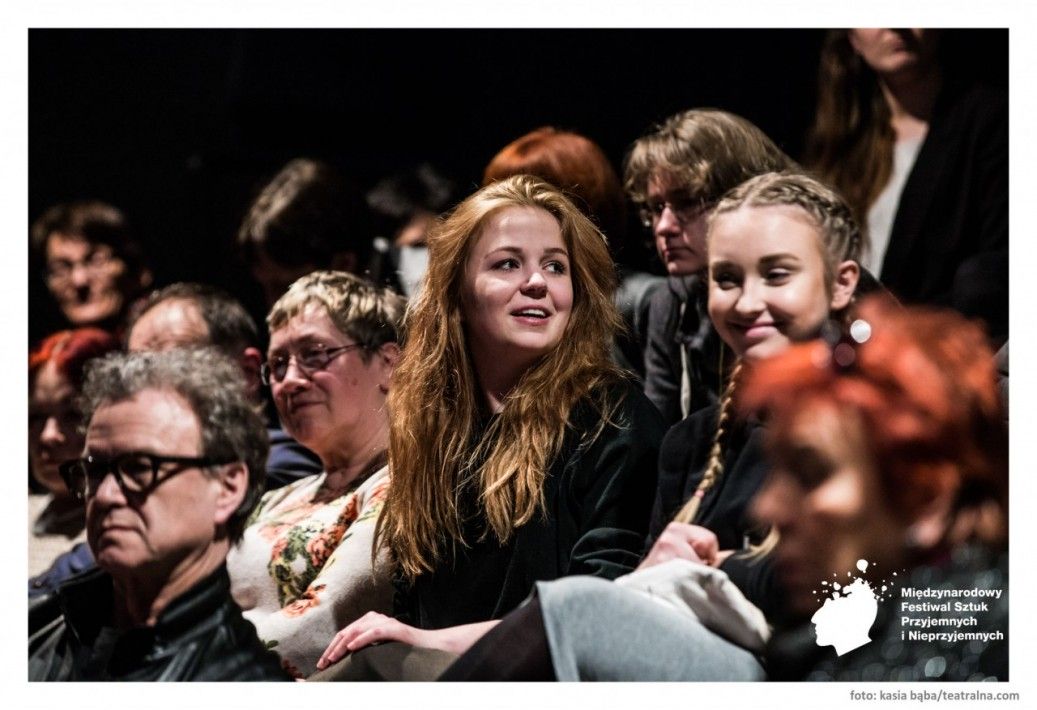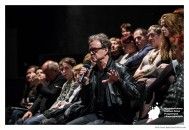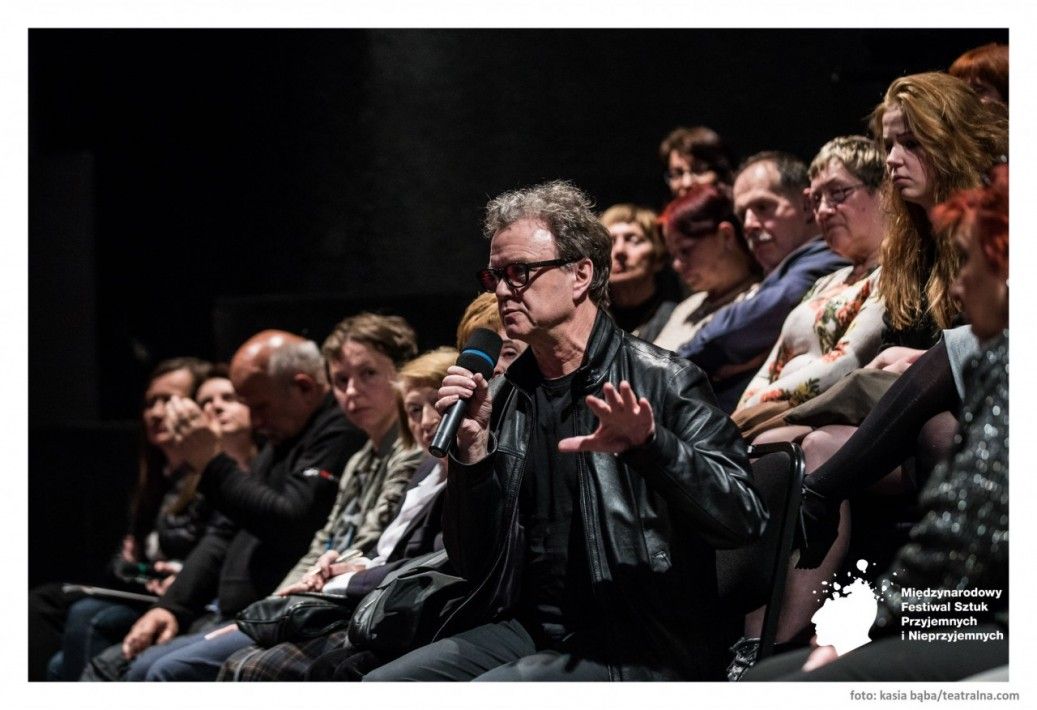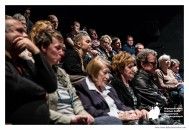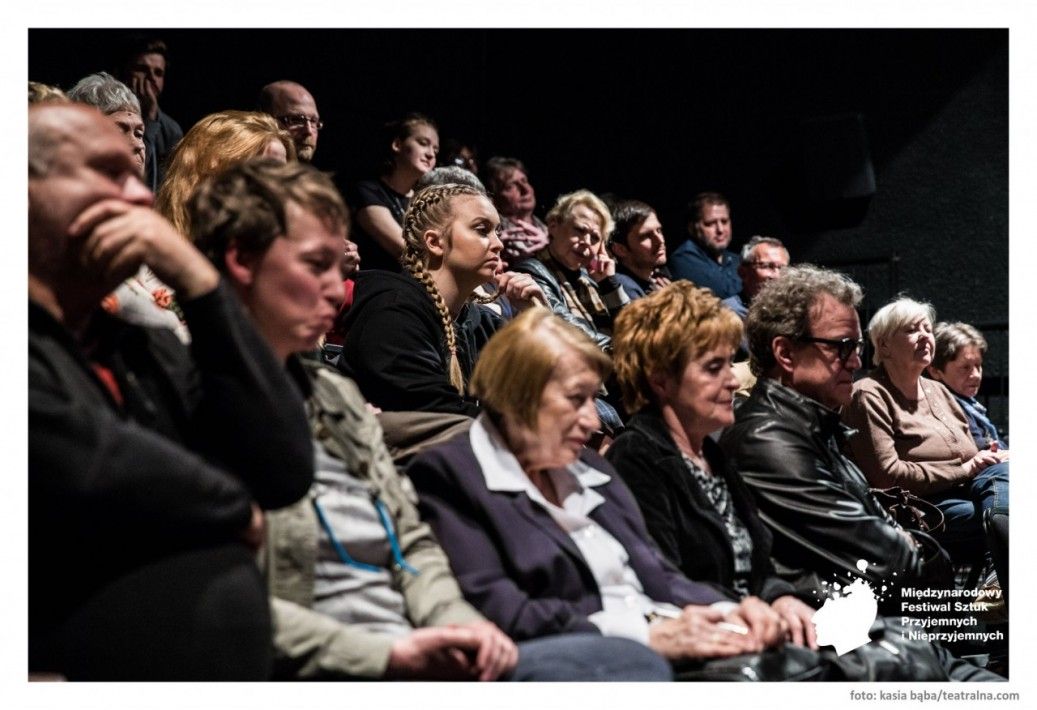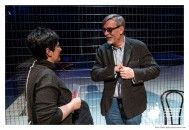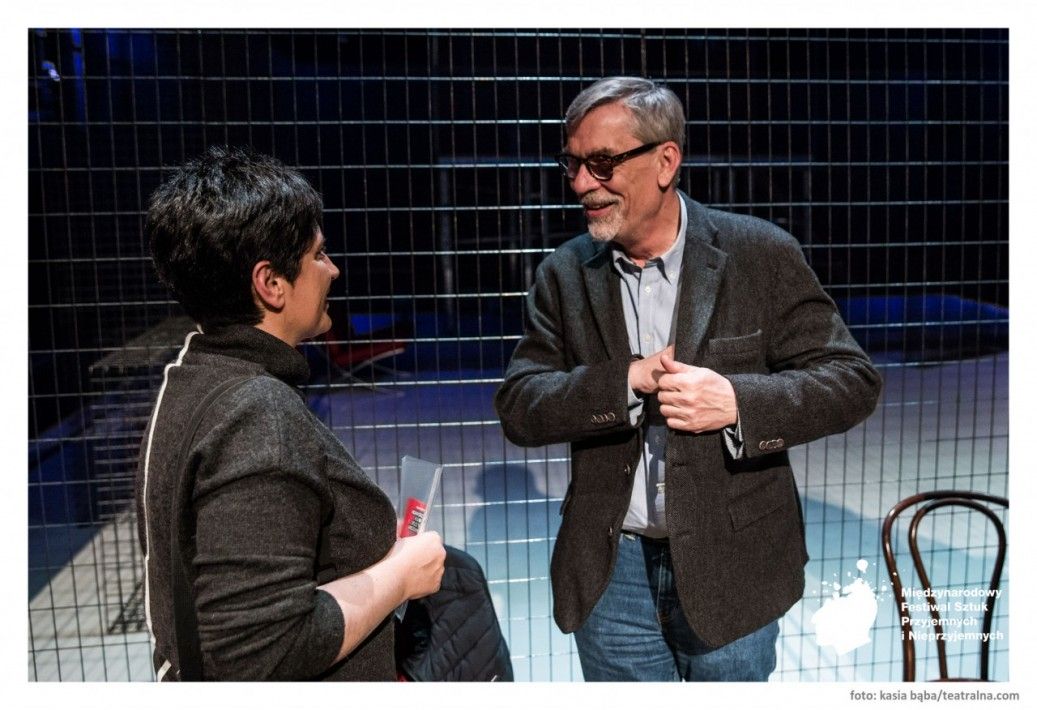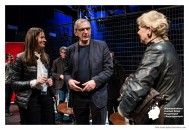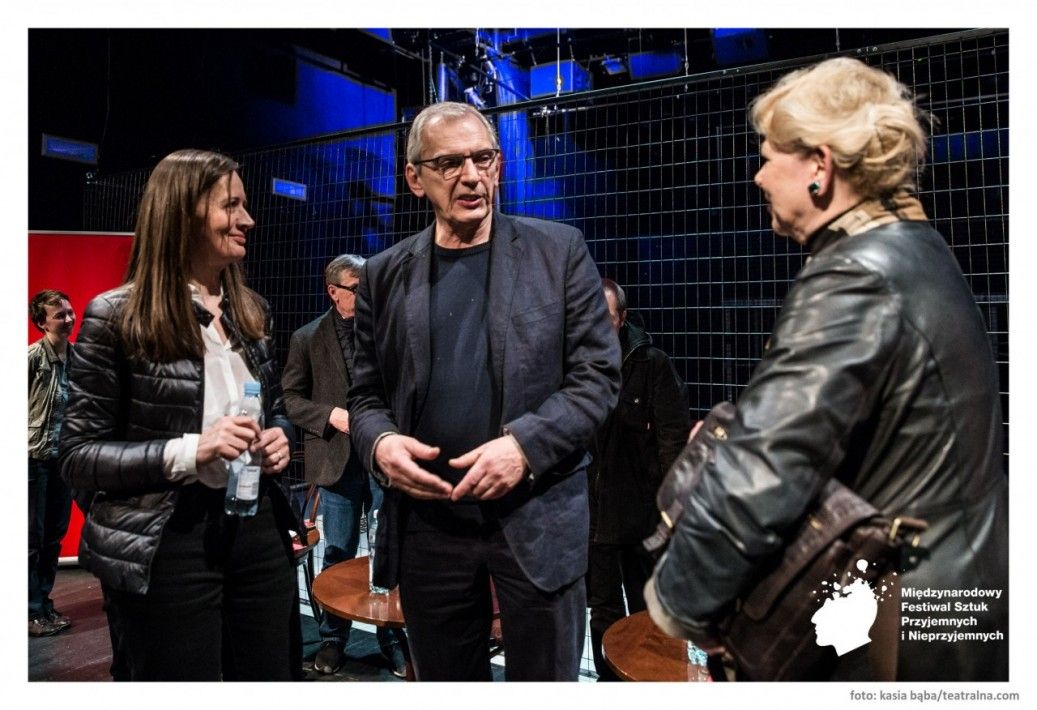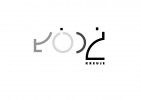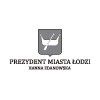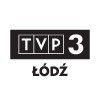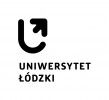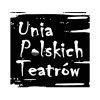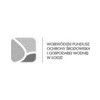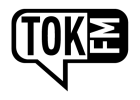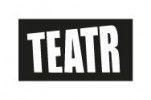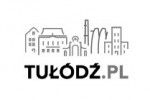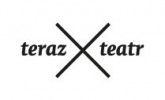Limitations of an artist – who is he limited by, why and in what way?
On 24 April on Small Stage of Powszechny Theatre in Łódź a panel discussion on “Limitations of an artist” took place. It was one of two final events (preview of “Tango Łódź” was the other) of the 22nd edition of International Festival of Plays Pleasant and Unpleasant.
- This is the third edition of our Festival in which Mr Jacek Żakowski agreed to moderate the discussion. I invite you to talk on artist and his limitations – the topic of spectacles and accompanying events of the 22nd edition of the Festival – said Ewa Pilawska, the Festival’s artistic director while welcoming the panelists: Jacek Żakowski (a journalist), Anna Materska-Sosnowska (a specialist in political science), Maciej Englert (director of Współczesny Theatre in Warsaw) and Przemysław Czapliński (a literary critic).
Below you can find excerpts from the discussion.
Jacek Żakowski: These are the times when the artists think about the limitations that are in force now and that will be in force soon; what does the word “limitations” mean? (…) One of the most obvious limitations is a lack of talent.(…) In my opinion a limited right to become silent is also very important. (…) An artist has a particular duty to speak, to comment – he cannot be silent. (…) There is a limitation in the form of spectators’ expectations of an artist, too. If he does not meet them, he may not receive his payment, he may be disavowed from the moral point of view and eventually he may be put to prison. (…) How do artists find themselves in contemporary reality?
Przemysław Czapliński: I can see four basic limitations. First of all it is the artist’s privacy that he does not want to reveal. Then there is the audience that the artist does not want to alienate. Thirdly – there is the law that he would not like to violate. And finally there are certain matters that limit him – by “matters” I mean financial limitations but also body limitations in the theatre. (…) Nowadays an artist has mainly legal limitations. Polish law makes it possible to punish an artist for offending the religious feelings, for instance. Unfortunately this may happen in practically every situation. (…) The audience, the privacy and the matters are much more variable. The legal limitation is nowadays much more constant. Therefore this limitation is also a challenge for the artists – they are forced to look for a new language that does not tell everything. Jean Cocteau once said that a true artist knows how far he can go without going too far. It is an artist's task to know the border.
Jacek Żakowski: Is the audience an important limitation? We live in times when various groups manifest their lack of acceptance – in front of theatres, galleries. There have not been such manifestations in front of Współczesny Theatre in Warsaw so far. What are the boundaries of the society’s tolerance?
Maciej Englert: Another question that should be asked is what the boundaries and obligations of provocation are. (…) Today’s discussion on theatre concerns mainly economic problems as well as the problem whether the theatre I offer may have spectators. If I say something and nobody listens then I should not work in theatre. (…) I am not satisfied with the popular opinion that the audience is not prepared to what I am saying. If I thought so I should not be the director of the theatre. Grotowski and Kantor producing their experimental works did not work in cultural institutions that were built (…) in order to enable the actors to say more than in music hall, for instance. (…) Cultural institutions are state institutions. A state institution has its office that wants to realize its own cultural policy. And this is normal. We are a little bit confused in all this – you do not know where the art is, where the ideology is, what is avant-garde and what is just a humbug. The criteria of rating have disappeared. Who do you consider an artist now?
Jacek Żakowski: Does not it worry you that we are to talk about artist yet we talk about money?
Maciej Englert: I often talk with artist – during these talks there is nothing but the problem of money. Discussion in culture community is not about art but about who is to get money. For the whole communist period in Poland I did not have the opportunity of meeting a cultural institution director (it did not matter if he was a member of the communist party or not) who would suggest to get more money that would be taken from another institution. (…) Today I hear that state money cannot be spent on farces, that middleclass theatres should be closed down, that we should produce real art. This word “real” is very fashionable nowadays. And what is real art?
Jacek Żakowski: What are other limitations? This is the question for Ms Anna Materska, a specialist in political science.
Anna Materska-Sosnowska: - There are no limitations in Polish or European legislation that would muzzle us. However Polish Criminal Law introduces certain limitations. (…) In my opinion the real wall and barrier are formed by a resultant of the state of public awareness, the engagement of political classes and public mood. What we do need are various theatres that meet different expectations. (…) But there are financial limitations and funds' cuts that depend on political mood. (…) And here is the question – are the spectators in any way being prepared to understand theatre, modern art?
Jacek Żakowski: (…) Yesterday we saw “Eenemy of the people” directed by Jan Klata, based on the drama by Henrik Ibsen. The threat of financial limitations was the main argument to convince the disobedient character.
Przemysław Czapliński: (…) There has been a culture schizophrenia growing since 1989. There are two sides of the barricade. So far financial means have been put on one, more liberal side together with something more valuable – respect and recognition for the artist. Today the situation looks like the other party – right, conservative and national – may have its own audience and it will mean the respect for other group of artists. There will be alternative competitions, awards, etc. The second party will get everything that decides on the circulation of art – from the idea till the final result. (…) Both sides may have the possibility of accumulating their own conditions of creating art. (…) Who is the artist today? The one who will not let himself be defined by any of those parties, discourses. (…) The artist is the one who can cross the limitations.
Jacek Żakowski: (…) We know it is difficult to think in a creative way when a man of culture has to think of figures. Artists who have been talking about money may be less efficient in a metaphysical dimension. (…) Is it a signum temporis that today artists focus on financial aspects?
Przemysław Czapliński: This has been the problem of an artist since he failed to obey his patrons. (…) Now this is the state's duty to provide artists with comfort and security – no matter if they are successful or not. Today we realize one thing – you can change the compositions of any committees and regulations and then you can have the influence on the repertoire, on what is shown and what is left out. State money can be controlled. (…) But I believe it is still possible for any piece of art to defend itself on the market – this was the case of Dorota Masłowska's first book which got Paweł Dunin's publishing house back on its feet.
Anna Materska-Sosnowska: There is a dangerous element in the politics of culture – the fact that subjective views decide on its form. Artists who are conflicted with the authorities will always have financial limitations.
Jacek Żakowski: Does not it happen that a flattered artist, an artist who feels good, loses his criticism and becomes “a fat cat”? (…) Is it always OK when the artists feel good?
Przemysław Czapliński: (…) Artists and art consumers start to appreciate the value of art when they realize the right of free opinion may be taken away. Then we ask questions who the artist is, what the social functions of art are, what the limitations of art are. We start to ask questions we have not asked for the last 20 years. (…) The situation is paradoxical. The curse lies in the fact that a liberal opinion has prevailed so far and everybody could choose anything he or she wanted as regards art, theatre, literature. Everything was allowed, nothing was forbidden. The openness was caused by a belief that there are very few possibilities of affecting art, reality. Now another opinion prevails – according to it you should select art, choose only the works that are important for shaping attitudes of people. Why? This opinion is caused by the confidence that art can influence reality. We do need somebody who would be a liberal and who would care for art at the same time.
Maciej Englert: We have been saying that art should be diverse. But at the same time we do not like this diversity – we divide it into a better diversity and a worse one and that depends on the side we stay on. It is a lack of openness for different way of thinking that seems to be one of the most basic limitations, not only of the artists.
A voice from the audience: Theatre spectators do not form any limitations! There would be no theatre if not for the audience.
Przemysław Czapliński: It is worth considering. There have been many situations since 1989 which show how a spectator may limit an artist. In the beginning of 1990's there were groups that boycotted Martin Scorsese's film “The Last Temptation of Christ”. But the film was shown in our cinemas. (…) Ten years later there was a court trial about the spectacle based on Olga Tokarczuk's novel “Day home, night home”. The theatre and the authoress won. In 2015 in Poznań the organizers of the Malta Festival were so frightened that the “Golgota Picnic” show was cancelled. (…) The audience is the power that can limit an artist. They may block the theatre entrance, they may frighten local authorities by inviting football hooligans or organizing riots. (...)
Anna Materska-Sosnowska: (…) Every society has a certain culture code and it draws the lines that cannot be crossed sometimes in a more effective way that a criminal code does.
Ryszard Kluszczyński (a voice from the audience): We live in a world where culture norms are in conflict with themselves so we cannot speak of any limitations imposed by culture codes. (…) Do not talk about “real” art, “real” artist. An artist is a person who creates art. (…) In Poland there has been a situation that influences the process of art receiving. (…) You talk a lot on money for culture. We have been facing the situation where the problem is not between art and money but between art and politics. Polish artists do not talk about art, they talk about politics. Ant it is the politicians who talk about art. (…) When bankers talked about art, the result was that the art market appeared. And then you could get along, you could build alternate languages against mainstream, against “market” piece of art. But when the politicians say what the value is, they create standards we are all trapped in. We start to believe that art should interpret and take up the subject of national identity. Why? There is planet culture, hybrid culture which is build up of many interwoven threads. There have been many threads in Poland that are at least as important as the Polish nation tradition. We are losing control over the language we use while talking about art and values. We receive instructions from the outside. This does not seem to be a limitation but sometime in future it will build up very hard walls.
(…)
Thank you very much for your participation in the discussion!
- - -
Moderator:
Jacek Żakowski – journalist and publicist, in 1993-2002 he worked for „Gazeta Wyborcza” daily; journalist of „Polityka” weekly; academic teacher, since 1999 head of Journalism Studies at Collegium Civitas in Warsaw. He was a spokesman for the Civic Parliamentary Club (1989-1991), one of co-founders of „Gazeta Wyborcza” and the first president of Polish Information Agency (1991-1992). He is a columnist for „Polityka”, he also writes for „Gazeta Wyborcza”. On Friday mornings he runs editions of „Poranek” at TOK FM radio station. He is an author and host of many TV programmes - Tok-Szok (with Piotr Najsztub), Tischner reads the catechism, Autograph, Overheard conversations at RMF FM radio (with Piotr Najsztub), Radio Zet Guest at Radio Zet station, Sum of events according to Jacek Żakowski, Tok2Szok (with Piotr Najsztub), Jacek Żakowski’s Week at TVP Info.
Participants of the discussion:
Anna Materska-Sosnowska Ph.D. – a specialist in the field of political science. She works as an assistant professor in the Department of Political Systems at the Institute of Political Science, University of Warsaw. She is member of Polish Political Science Society. She is a commentator of political life, an author of many publications on Polish contemporary political arena.
Maciej Englert – an actor and a theatre director. He debuted as a director in 1971 under Edwin Axer in Współczesny Theatre in Warsaw. In 1976- 1979 he was a general and artistic director of Współczesny Theatre in Szczecin as its founder. Then he returned to Warsaw and in 1979-1981 he was a deputy director of Współczesny Theatre. Since 1981 he has been the director of this Warsaw stage.
Przemysław Czapliński – a literary critic, professor of contemporary literature. He is a head of the Literary Critisism Department at the Adam Mickiewicz University in Poznan. He was a member of the Committee on Literature Studies of the Polish Academy of Sciences. In 1997-2001 he sat on the jury of The Nike Literary Award. He is one of the jurors of the theatre competition on Polish contemporary drama „Metaphors of reality”. Author of numerous publications including Marks of breakthrough. The Polish prose between 1976-1996 (Ślady przełomu. O prozie polskiej 1976-1996), Moving margins: essays on the literature oft he 90s. (Ruchome marginesy: szkice o literaturze lat 90.).


